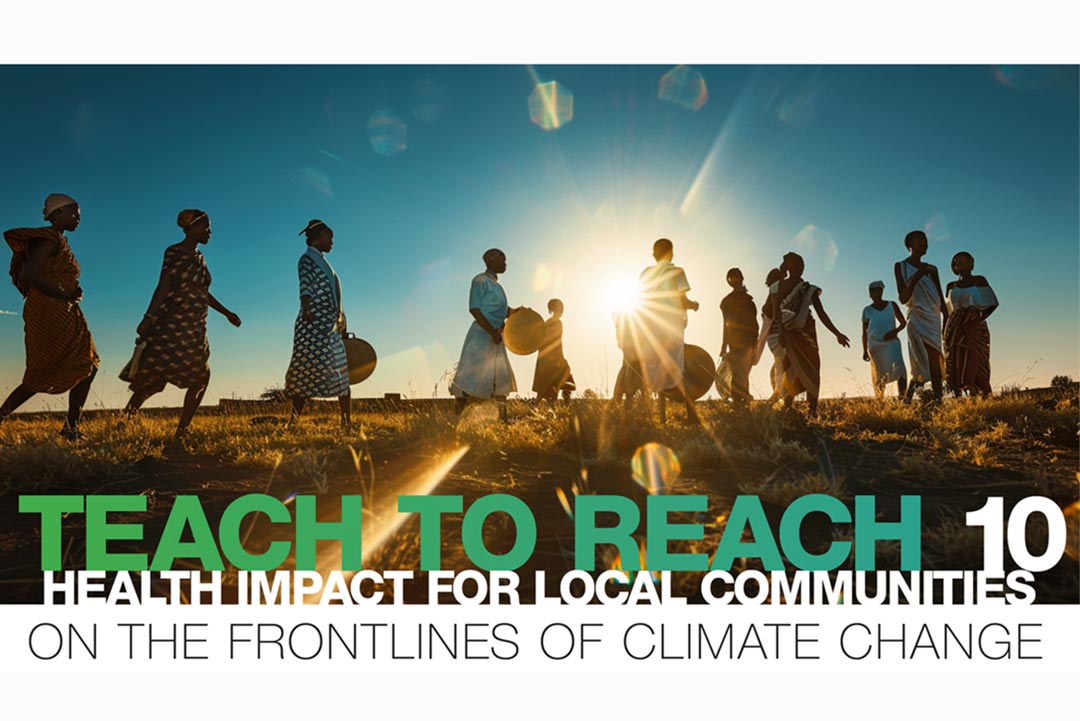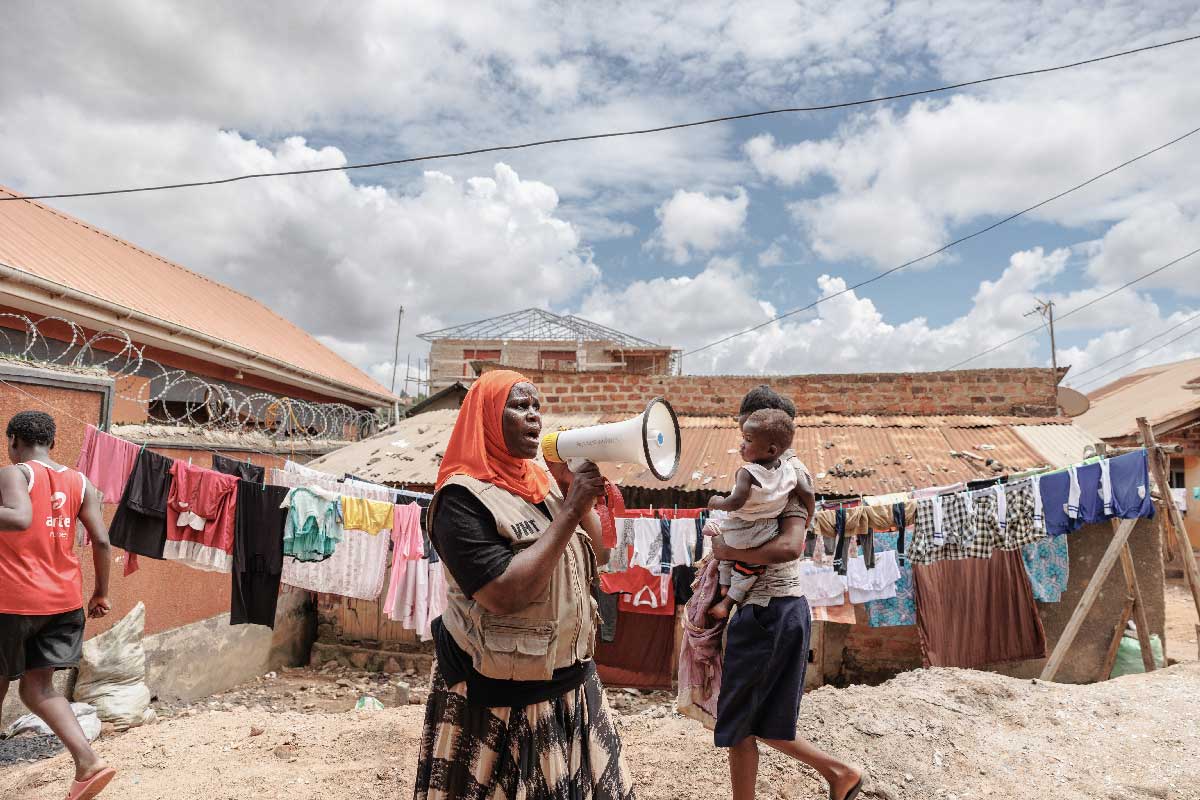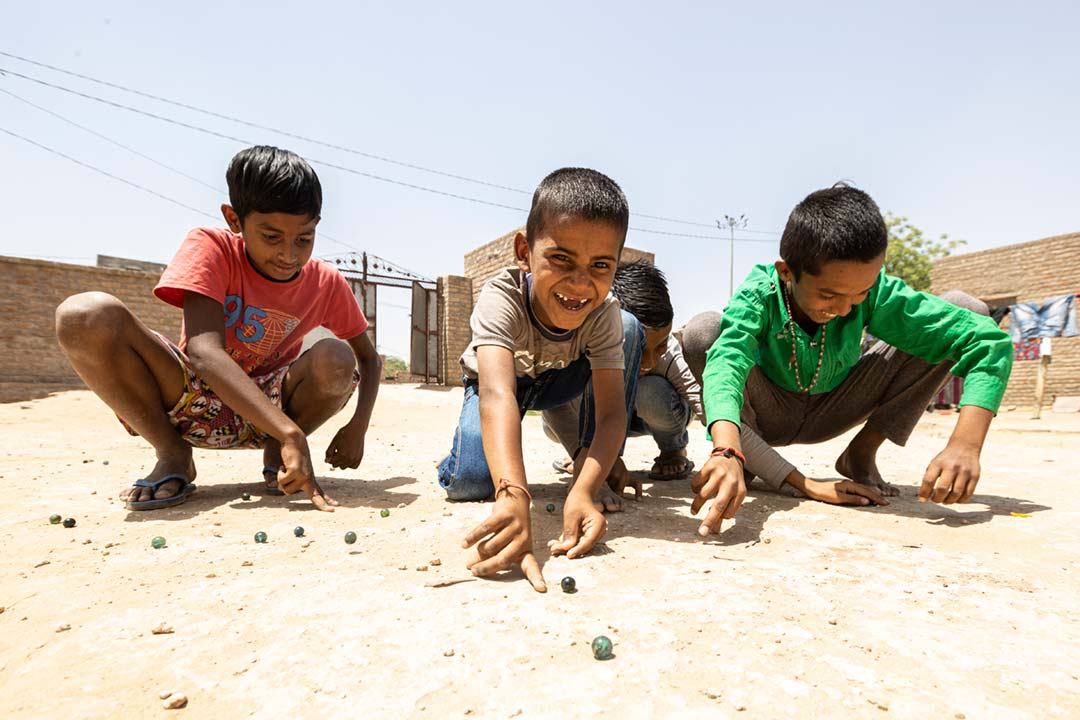Climate change and health – the health workers’ eyewitness perspective
Working within communities, health workers are ideally placed to see the health impacts of climate change – and to identify ways to mitigate them.
- 24 May 2024
- 7 min read
- by Reda Sadki

In recent years, the focus of climate change has shifted from polar bears to people. There is now increasing recognition of the health impacts of climate change, which have become a specific IPCC focus.
Language has shifted too, with "global warming" being supplanted by "climate change", recognising the fact that it is not just higher temperatures that are the problem. Factors such as ocean acidification, changes to ocean current dynamics and extreme weather are all having profound impacts – including on human health.
These impacts are highly diverse. Higher temperatures increase the risk of heat stress. But most impacts are more subtle, and result from complex pathways of causation. The changing distribution of insect vectors is altering exposure to infectious disease; drought or flooding is decimating farming productivity, leading to malnutrition; extreme weather causes floods and landslides that, as well as leading directly to deaths, destroy properties, damage health facilities and prevent people accessing health care; hardship, loss of livelihoods and forced migration can have major impacts on mental health.
Because climate change has been such a politicised issue, bodies such as the IPCC have understandably based their judgements on rigorous evidence, cautiously interpreted. This evidence is mainly held within the scientific literature, the world's foremost body of knowledge. Vital though this approach is, it gives little sense of what climate change actually means to people living through it.
Giving communities a voice
Our connections with health workers in the Global South have given us an opportunity to address this gap. The Geneva Learning Foundation (TGLF) organises peer learning programmes that use digital technologies to enable health and humanitarian workers in the Global South to meet and share experiences and advice relating to their local challenges.
Participants identify a local issue and develop a plan to address it, supported by their peers and with input from global experts. By situating learning within the context of a practical challenge, participants learn what they specifically need to apply – a far more effective way of learning than traditional top-down "lecture and learn" models.
Much of our work has focused on immunisation. However, in 2023, we invited members of our network to share their experiences of climate change and how it is affecting the health of their local communities. Inputs from more than 1,200 respondents, collated into a TGLF Listening and Learning Report, provided a vivid insight into how communities in the Global South are being affected by climate change, and how these effects are being perceived.
Although not a representative sample, the quantitative results revealed that many health workers are already seeing multiple effects on health in their local communities, particularly malnutrition, and more vector-borne diseases such as malaria and water-borne diseases such as cholera. Typically, it is disadvantaged populations who are most affected, as they lack the resilience and the resources to cope with even minor shifts in their circumstances. In addition, some groups, such as children, pregnant women and older people, are especially vulnerable because of biological or social factors.
Have you read?
Notably, many responses discussed broader environmental issues – illustrating how climate impacts are not being experienced in isolation. Factors such as changes in land use and pollution are affecting the environment in which people live, and that they rely on. Climate change has been described as a "threat multiplier",in light of its devastating capacity to make many other big problems even worse.
What to do?
To mark COP28, in December 2023 we organised a follow-up event, inviting past contributors not just to share their local experience of climate change's impact on health, but also to describe any responses they were making and what they would say to COP28 leaders. Their responses have also been collated into a TGLF Listening and Learning Report.
Their latest contributions reinforce many of the insights from the first Listening and Learning Report. Communities are being affected, in multiple ways. Life is becoming harder, health concerns are growing, yet delivering and accessing health care is becoming harder.
"Climate is affecting children in so many ways, especially lack of adequate food, increase in diseases, increase in temperature among other things has really affected the future. What worries me most the environmental degradation, pollution and the cost of food production and dwindling income levels in most households where families can barely have decent meals daily."
– Derrick Simuunza, Livingstone City Council, Zambia
Despite this gloomy picture, health workers are not giving in to despair and fatalism. Many are working to raise awareness of climate-related health challenges in their communities, and trying to change attitudes and behaviours. Many are trying to promote practical changes that will benefit public health, encouraging better sanitation and hygiene and eliminating environments in which mosquitoes can flourish. And many are trying to address environmental misuse, such as deforestation, that is contributing to climate change, and planting their own trees as an act of resistance.
"The little that I can do is to advise the community members on tree planting, to go green, and to protect the environment through effective sanitation and hygiene activities."
– Gwom Henry Moses, Ropp District, Plateau State, Nigeria
There is something poignant about these local efforts to hold back the climate change tsunami, in communities that have made essentially no contribution to climate change and are experiencing its most devastating effects.
The responses also reveal important insights into what health workers believe can make a difference. They urge global leaders to reach agreement on greenhouse gas emissions and to accelerate the transition to green energy sources. But they also highlight other actions that they believe will benefit their local communities. Often, these focus on the basics – ensuring access to clean water and effective sanitation.
Others highlight the importance of fundamentals such as poverty alleviation and education – empowering communities to make the changes that are needed to protect against climate change.
Thus, while adaptation is likely to be essential almost everywhere, it may be a mistake to think solely within the silo of climate change. A more integrated, systems-wide perspective is needed, recognising the full spectrum of biological, social and behavioural shifts being driven by climate change that are affecting health and well-being.
Furthermore, another commonly raised issue was the need for communities themselves to be at the heart of discussions. Global negotiations and national strategies may be critical, but communities themselves know best what the local challenges are and what changes should be prioritised.
"Listen to the people and respond. It is only logical to treat people as people, not as potential cases or cases of some condition or disease. The people's needs come first. Give them a chance to choose what is important to them and not to the policymakers, programme designers, implementers and promoters. Priorities are set without the beneficiaries, and we wonder why certain interventions are not delivering the desired outcomes. If it is not supported by the beneficiaries, it should not be done."
Dr Davy Wadula Zulu, public health specialist, Lundazi District, Zambia
Giving a voice to health workers
TGLF will be continuing its focus on climate change and health. Its goal is to create platforms that enable health workers and other local stakeholders to be both the documenters of local climate change impacts on health and also intimately involved, with their local communities, in the development of locally tailored solutions. By connecting thousands of "climate health activists", we aim to facilitate the sharing of experience and ideas – disseminating not just knowledge, but also the motivation to achieve change.
Most immediately, we are organising a "Teach to Reach: Connect" online event in June 2024, which will allow health, development and humanitarian workers to meet, share experiences, make connections and learn from each other.
There will not be one solution that miraculously protects the world's population from climate change. But there may be hundreds of bright ideas generated by those who are already trying to deal with its consequences –small, practical changes that really make a difference. Through the connections facilitated by TGLF, these ideas can be shared and disseminated rapidly and efficiently on a global scale. Given the urgent need for action, this community-based "self-help" has the potential to be a critical component of the global climate response.
"Children are the leaders of tomorrow. There won't be a better tomorrow when we ruin our planet. It's our collective responsibility to ensure that we do our best to prevent climate change in the long run. With the recent happenings in climate change, we need to act immediately because we risk destroying our children's tomorrow."
Dr Mbursa John Bwala, public health specialist, Maiduguri, Nigeria.
Teach to Reach: Connect 10 will be held on 21 June 2024 and include sessions on climate change and health, malaria and the neglected tropical disease, female genital schistosomiasis. Separate sessions are held in English and French.








